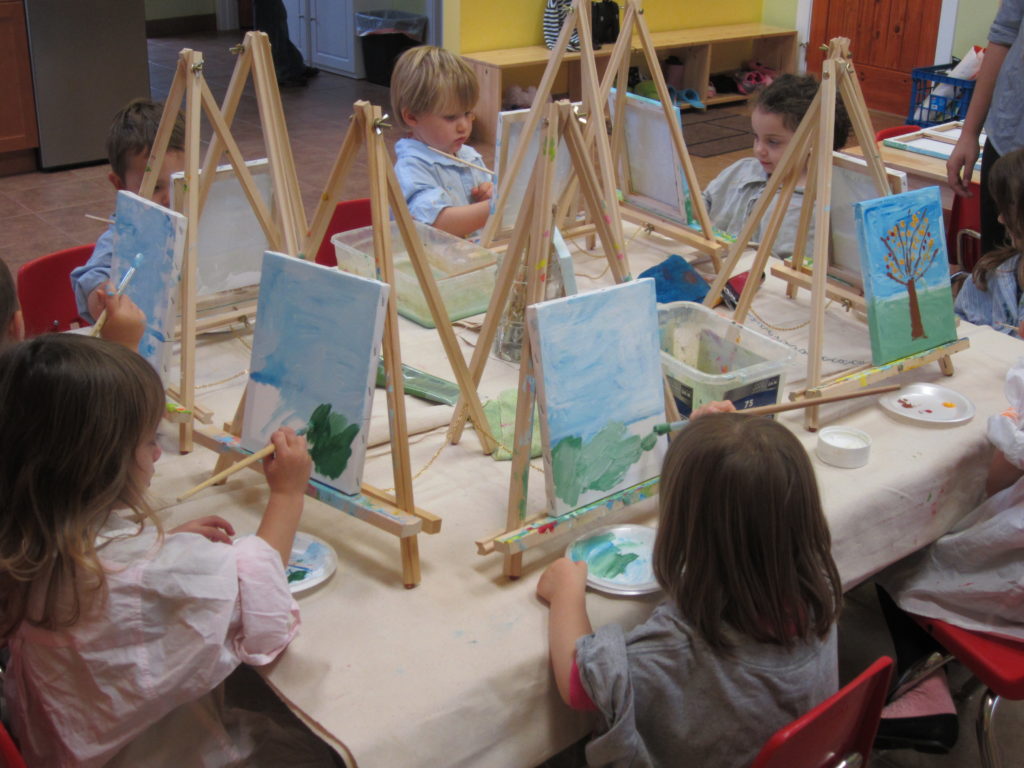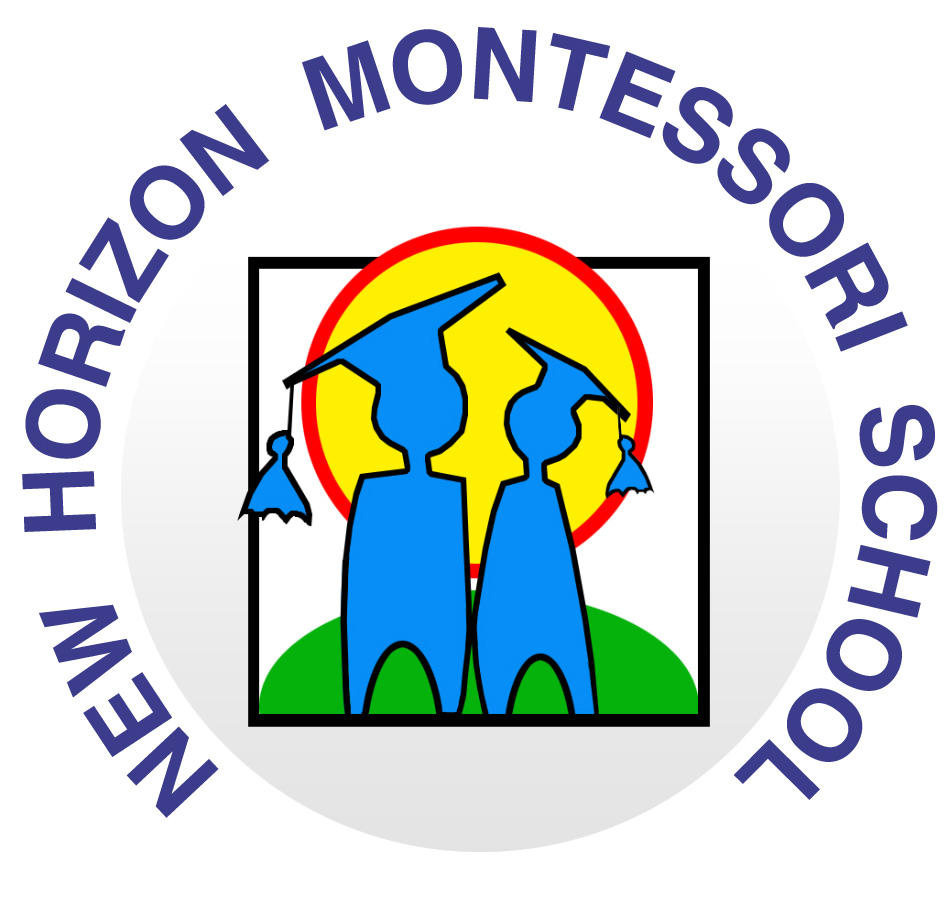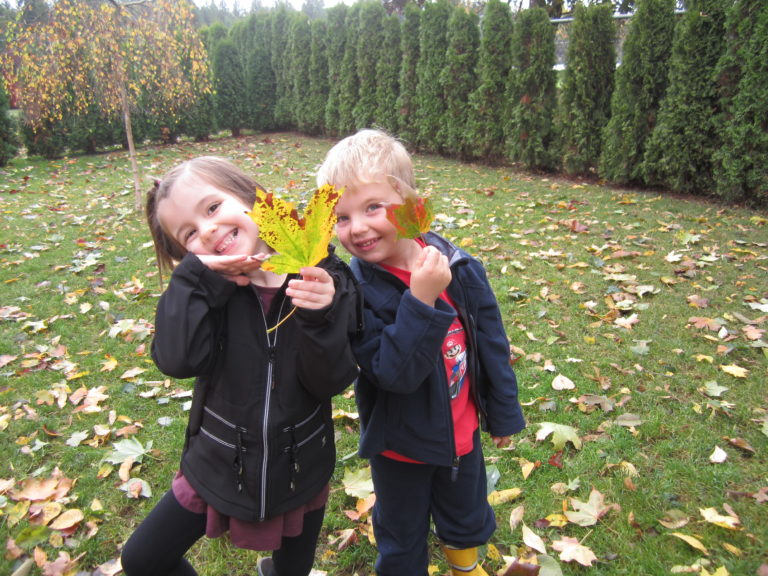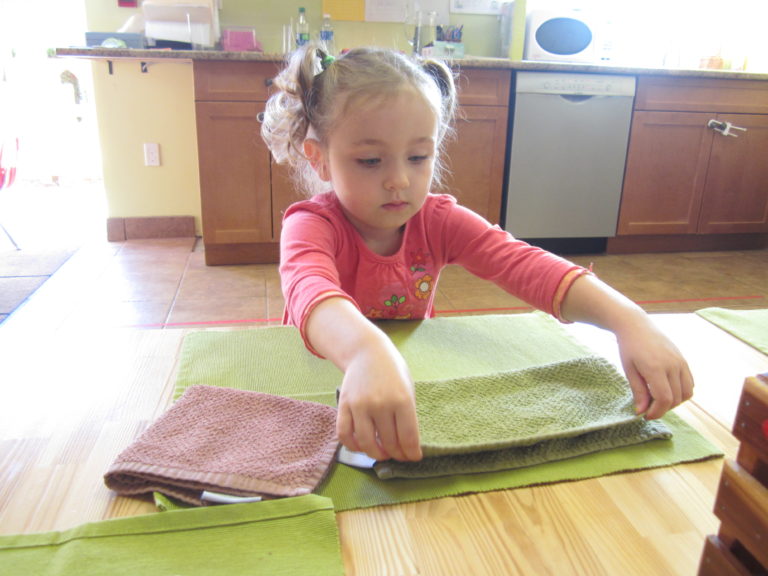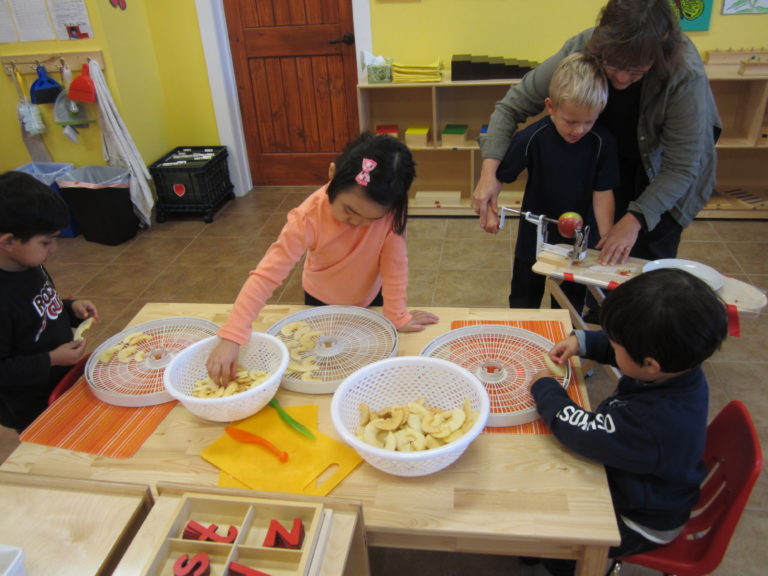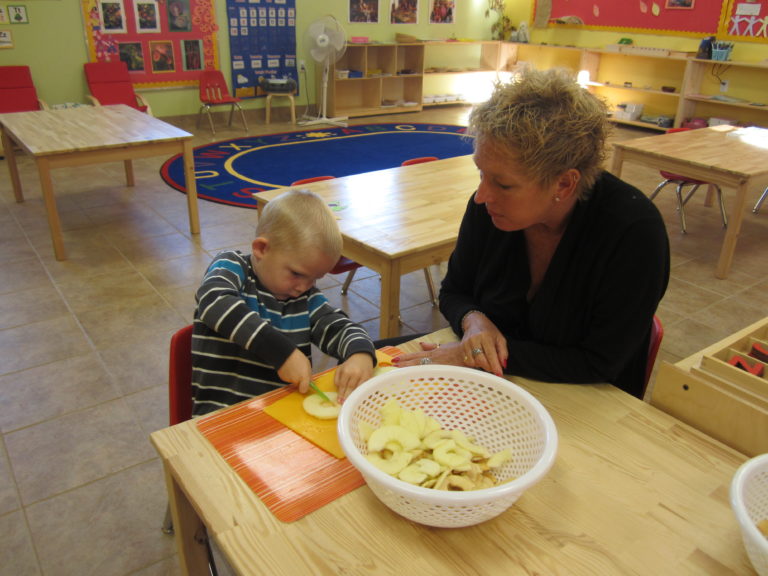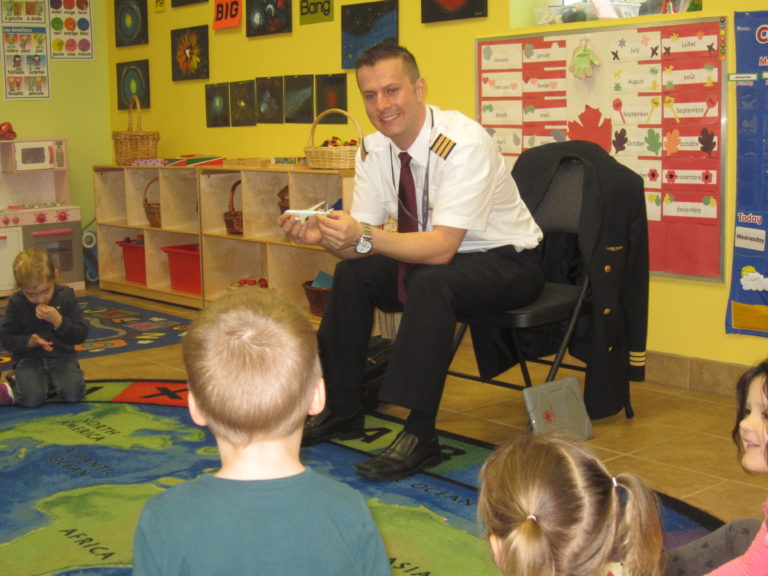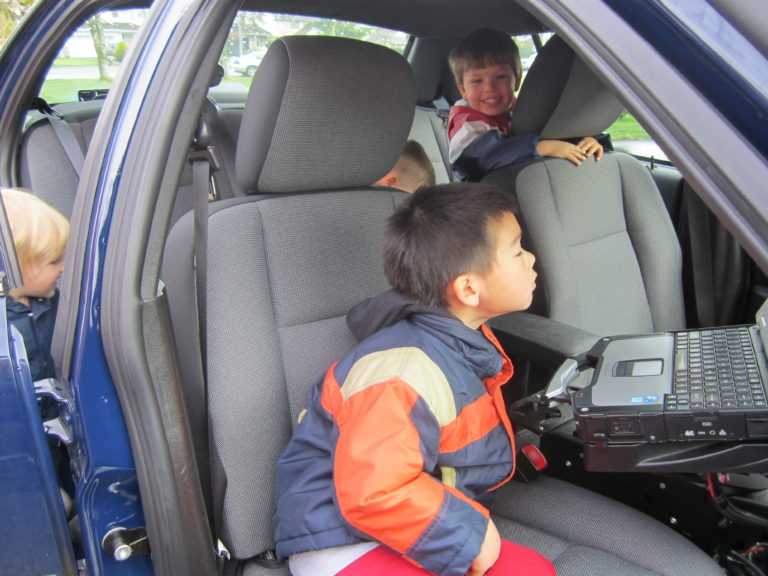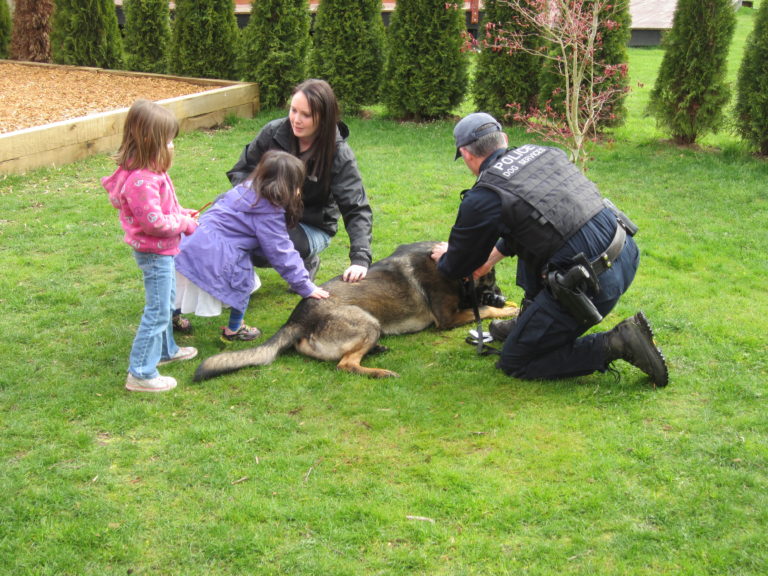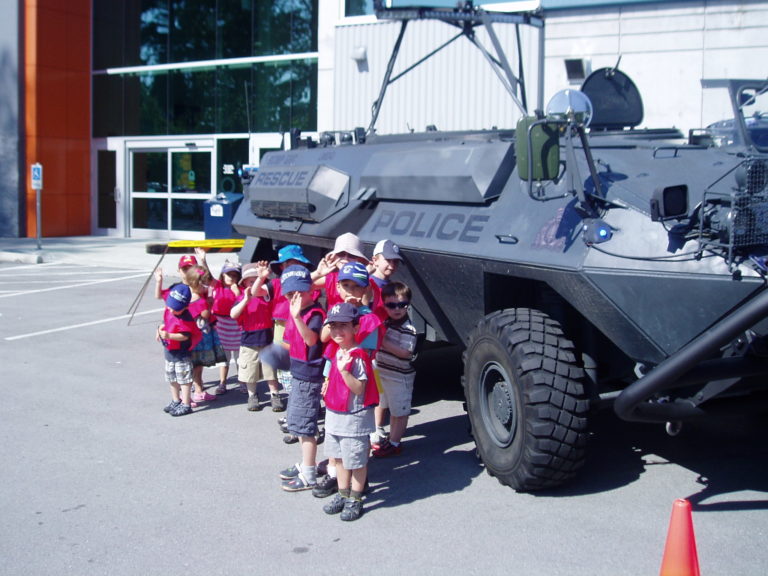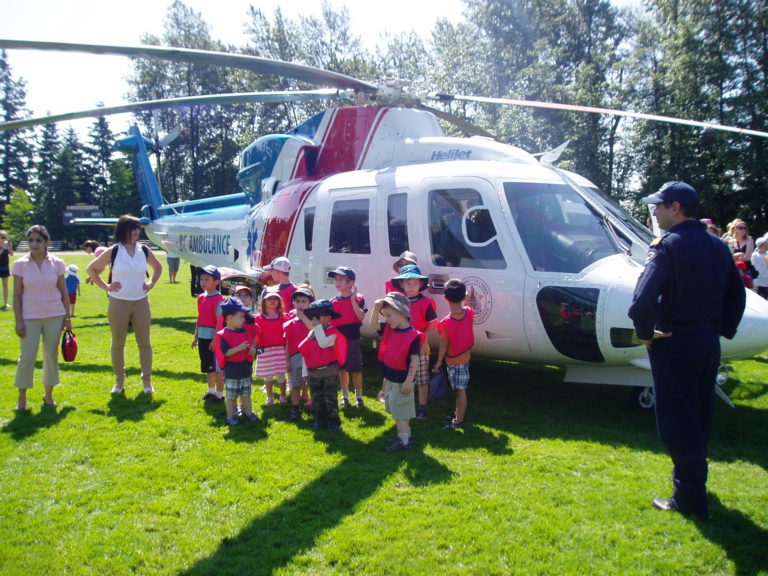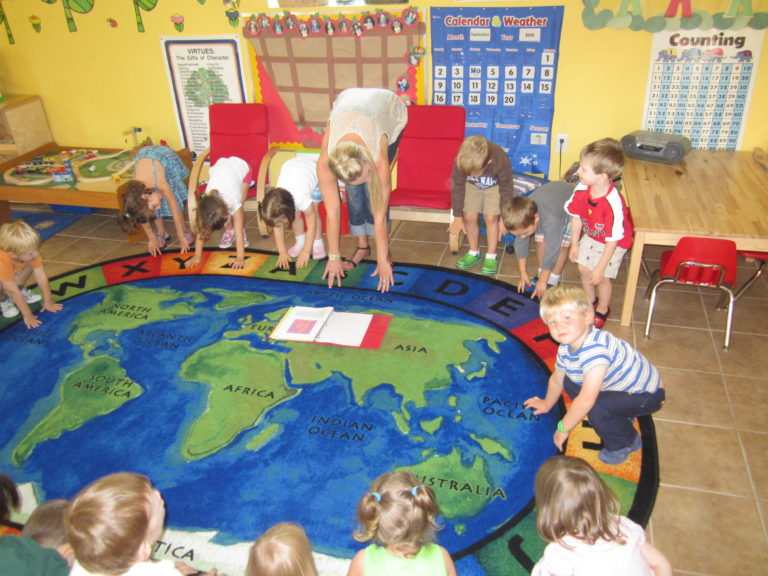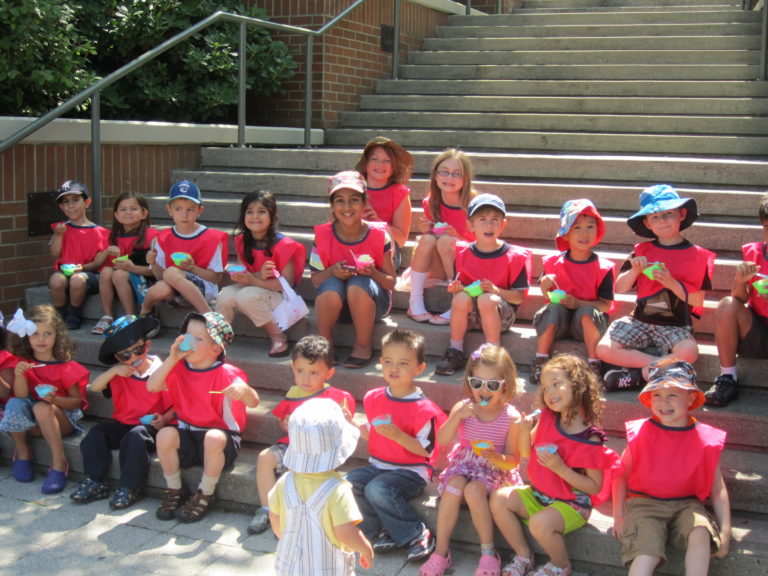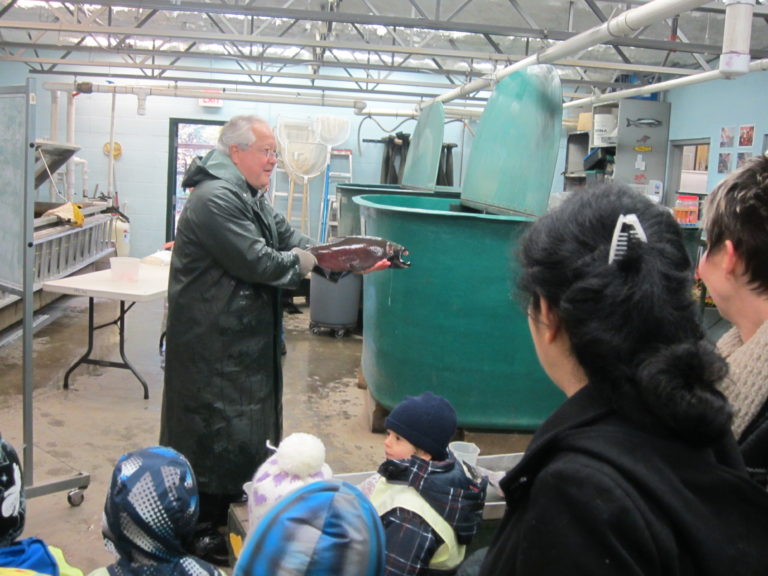Our Mission
New Horizon Montessori School will provide all children with an opportunity to reach their full potential at their own pace. Our goal is to nurture each child’s natural desire to learn. We seek to achieve this by being passionate about what we do and having compassion and respect for each child’s individuality.
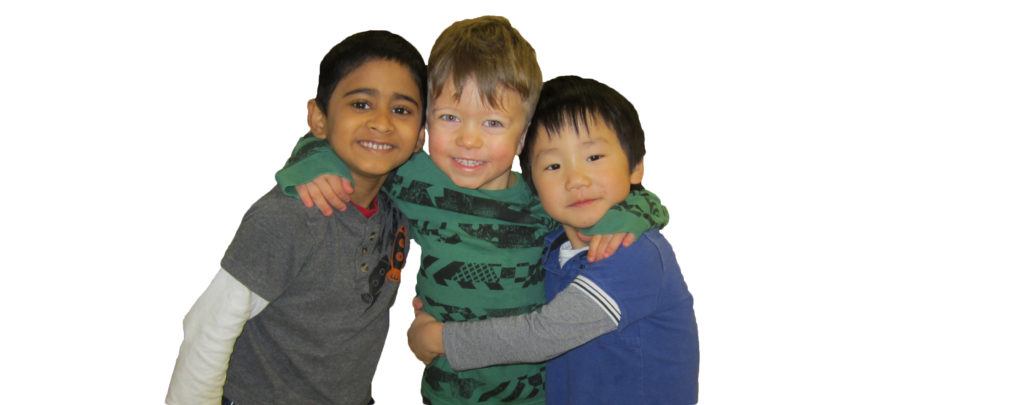
Our Curriculum
New Horizon Montessori School’s curriculum and classrooms are modelled around the premise that children learn most effectively when given the freedom to follow their natural curiosities. When students freely observe, interact with and investigate their natural inclinations they become captivated by different subjects and materials. As educators, we believe our approach to education encourages children to become engaged with their surroundings and take their learning further than any teacher could alone.
All instructors at New Horizon Montessori School specially monitor each child’s individual progression and interests to offer materials and lessons students will find personally engaging.
Our curriculum has specific areas of concentration: Practical Life, Sensorial, Language, Mathematics, Geography, History, Botany and Zoology. Within each of these areas, a child learns by handling and studying different education materials.
New Horizon Montessori is proud to supplement our academic programs with an abundance of wholesome activities including Physical Education & Yoga, Music & Movement, Kinder Canvas®, Cultural Studies and of course Free Play Time.
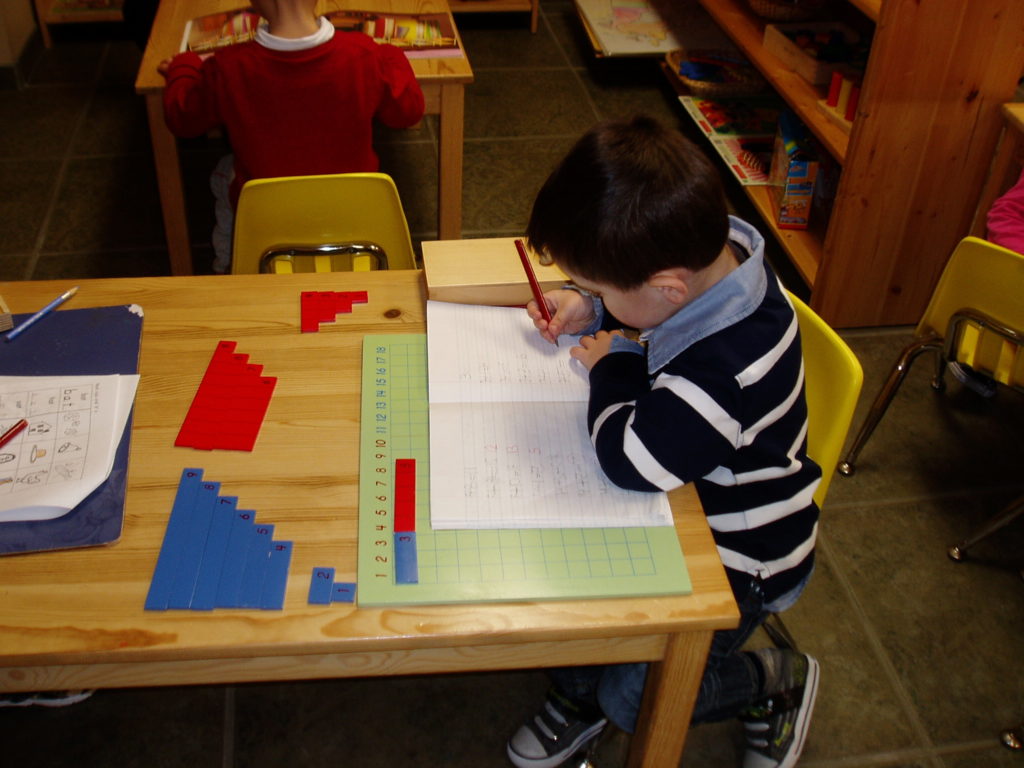
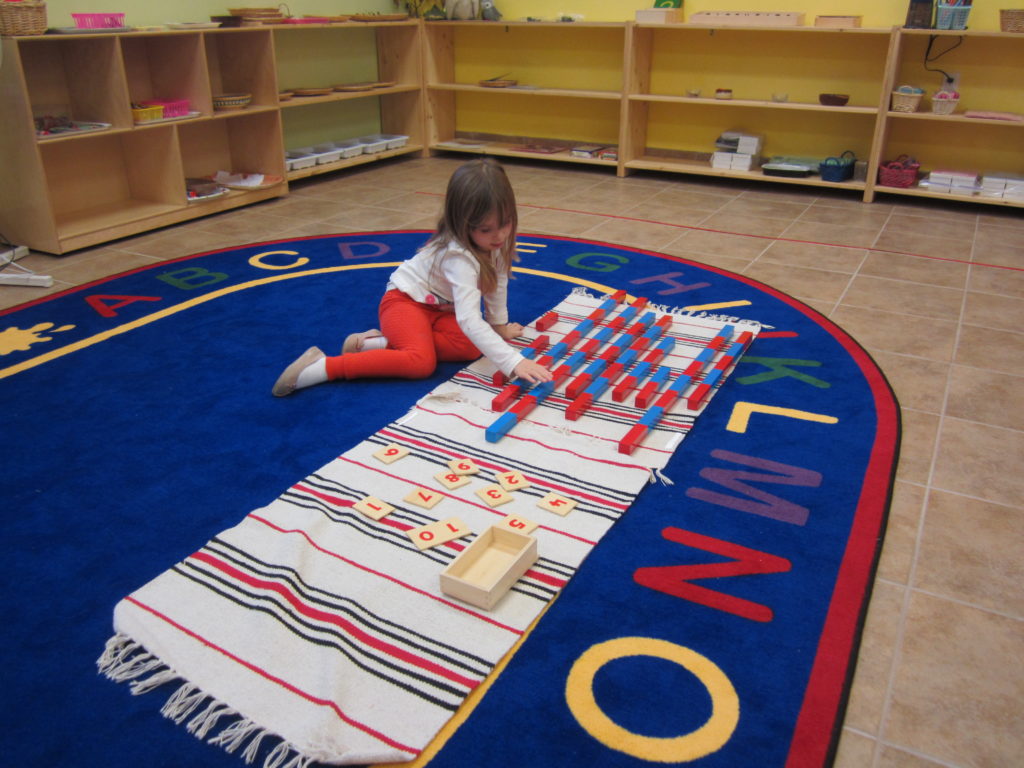
Mathematics
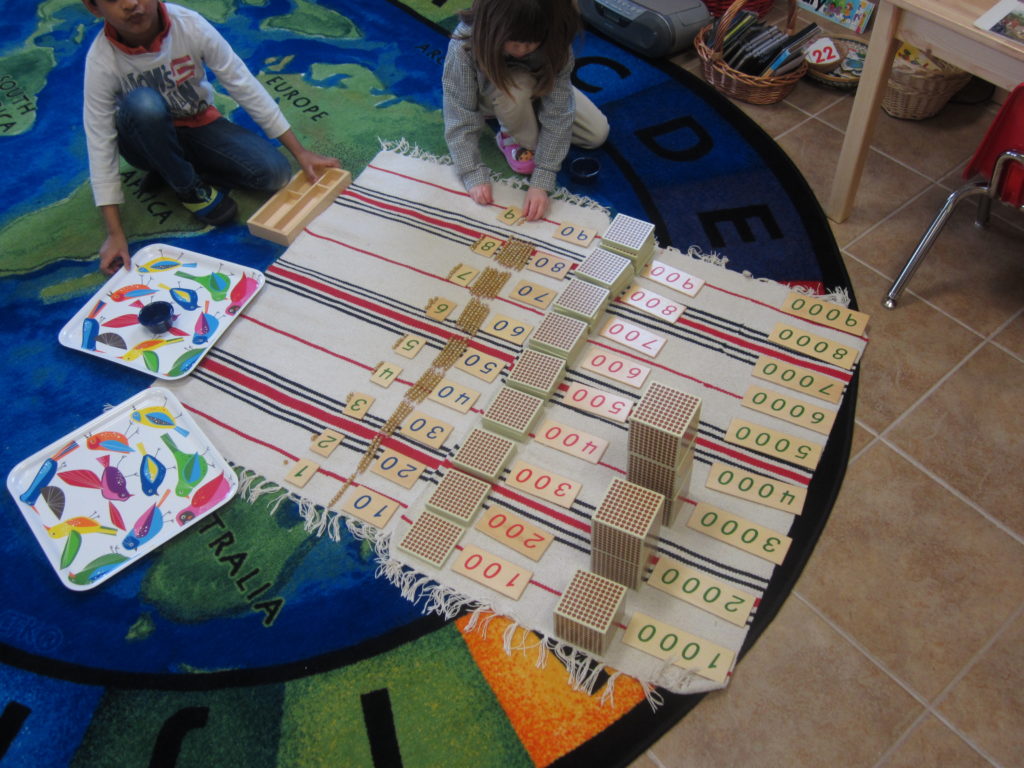
In the Mathematics section of our curriculum, students learn the value and arithmetic symbols of 0 to 10 through the use of manipulative hands-on materials. Students will then progress to studying and completing mathematic exercises with units, tens, hundreds and thousands. The manipulative materials in our curriculum allows students to self-discover basic arithmetic operations and lead to the mastery of addition, subtraction, multiplication and division.
Language Arts
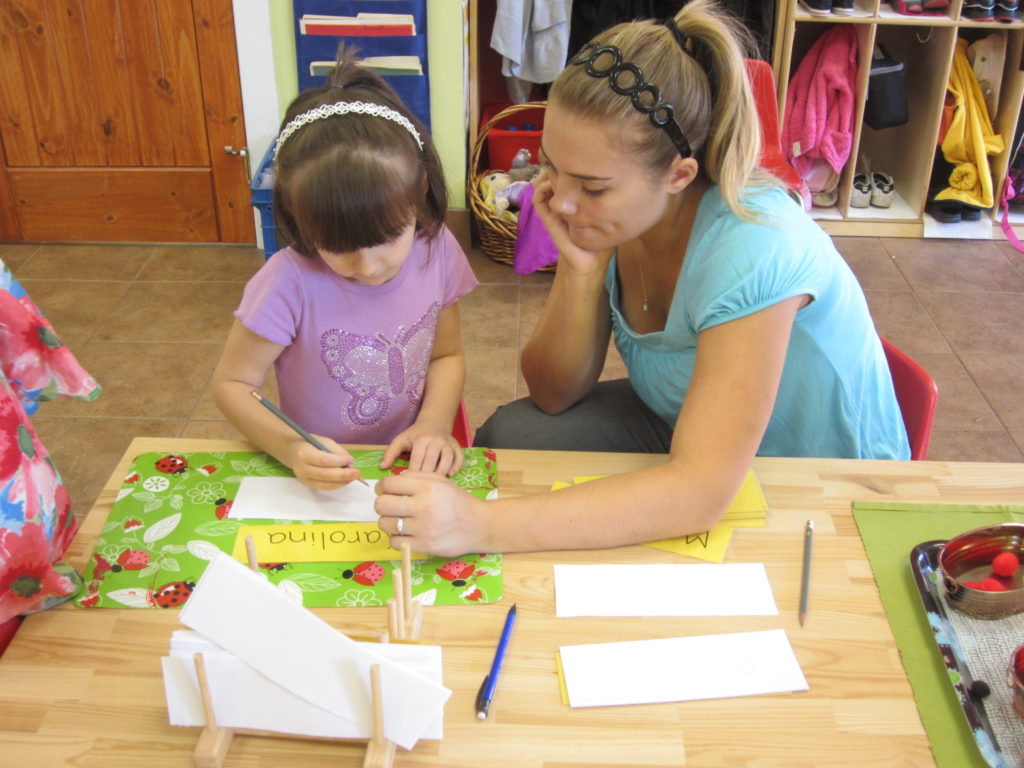
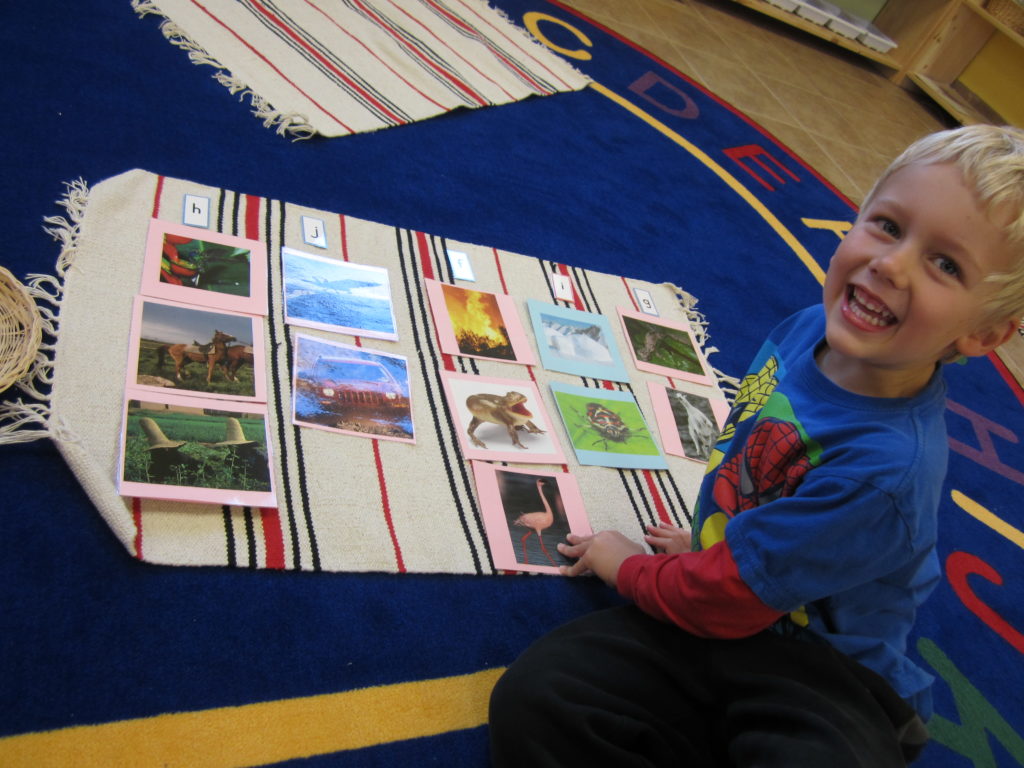
In Language Arts, children engage in activities using hands-on materials such as Sandpaper Letters and Metal Insets to prepare them for reading and writing. Once students master Sandpaper Letters by sight and sound, they will progress to the composition of 2 and 3 letter words. Students will subsequently advance to phonetically building words, 4 or more letters in length, using Moveable Letter Montessori materials. Once children are confident with these skills, they will be introduced to non-phonetic language and learn individual phonograms. The final portion of the Language Arts curriculum is an introduction to the basic parts of speech and grammar.
The Montessori language lessons and materials teach children the fundamental skills required to read and write, and succeed in future academic courses.
Sensorial
In the Sensorial section of our curriculum, children’s senses, sight, touch, hearing, taste and smell, are isolated and developed through self-correcting materials. Montessori materials including Rough/Smooth Board and Baric Tablets stimulate a child’s tactile sense. Knobbed Cylinders and Pink Tower materials allow children to visually differentiate height, width and depth.
The aim of our Sensorial activities are to develop coordination, concentration, focus and independence as students work with Montessori materials.
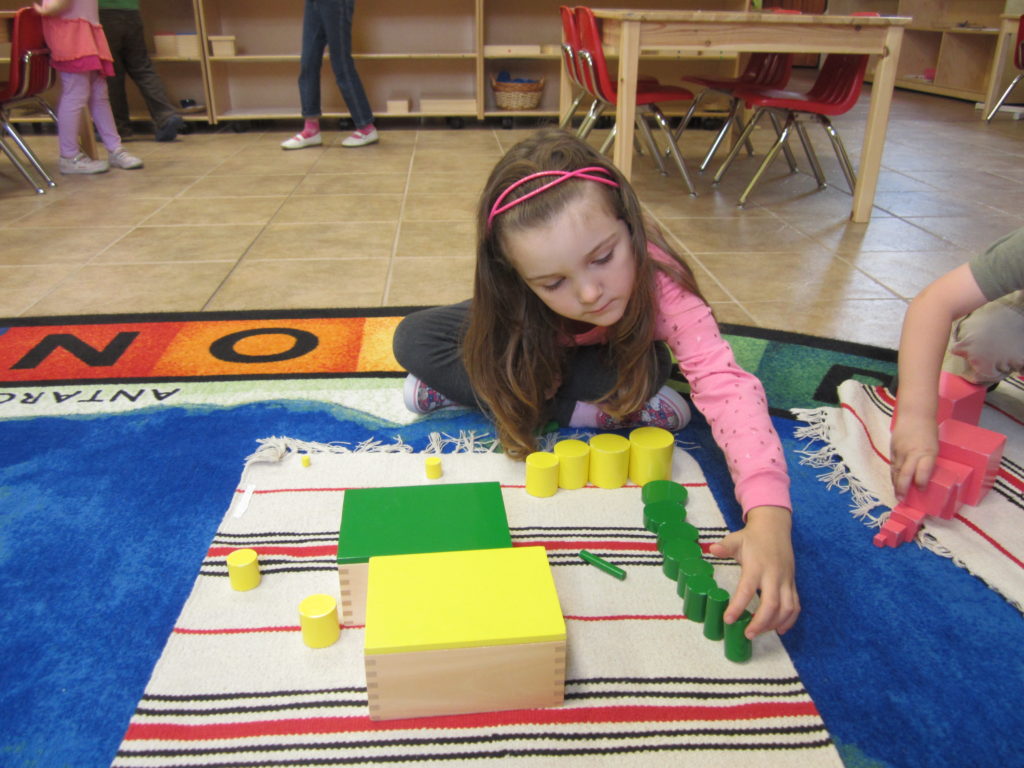
Practical Life
In Practical Life, children will learn and practice everyday life skills using materials that mimic common and routine life scenarios. This section of our curriculum is broken down into four main areas: Care of the Person, Care of the Environment, Grace and Courtesy and Development of Movement.
The activities in Practical Life coupled with Sensorial activities are designed to develop and improve fine/gross motor skills, social and spacial awareness, environmental consciousness, self-confidence and independence.
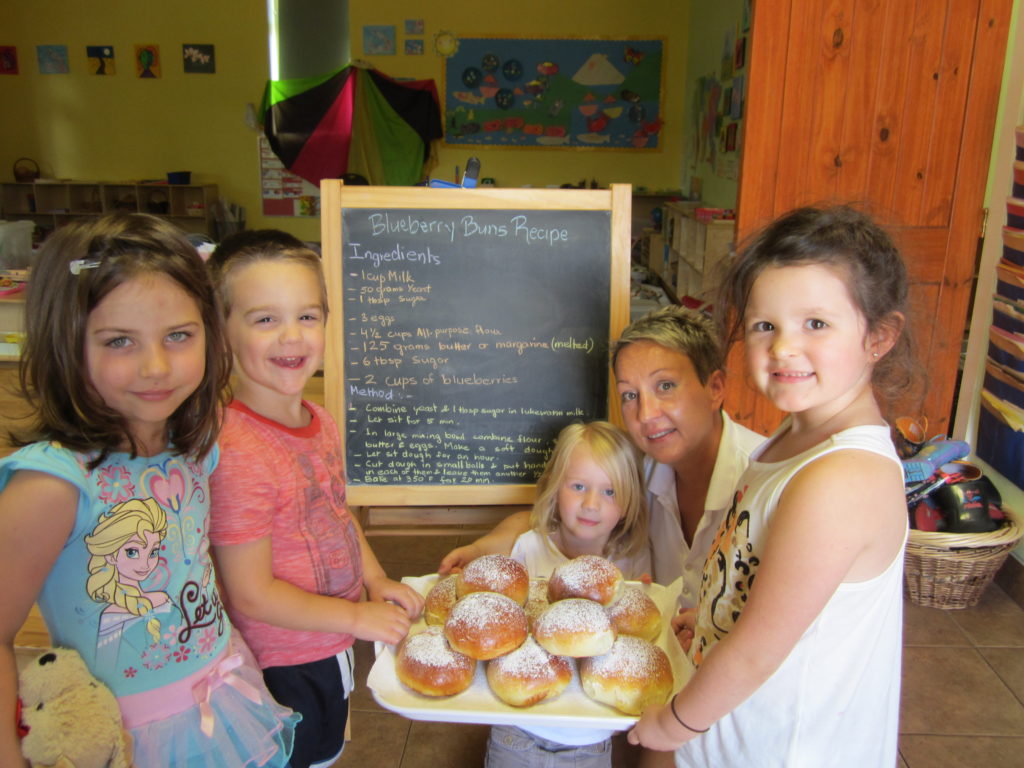
Botany
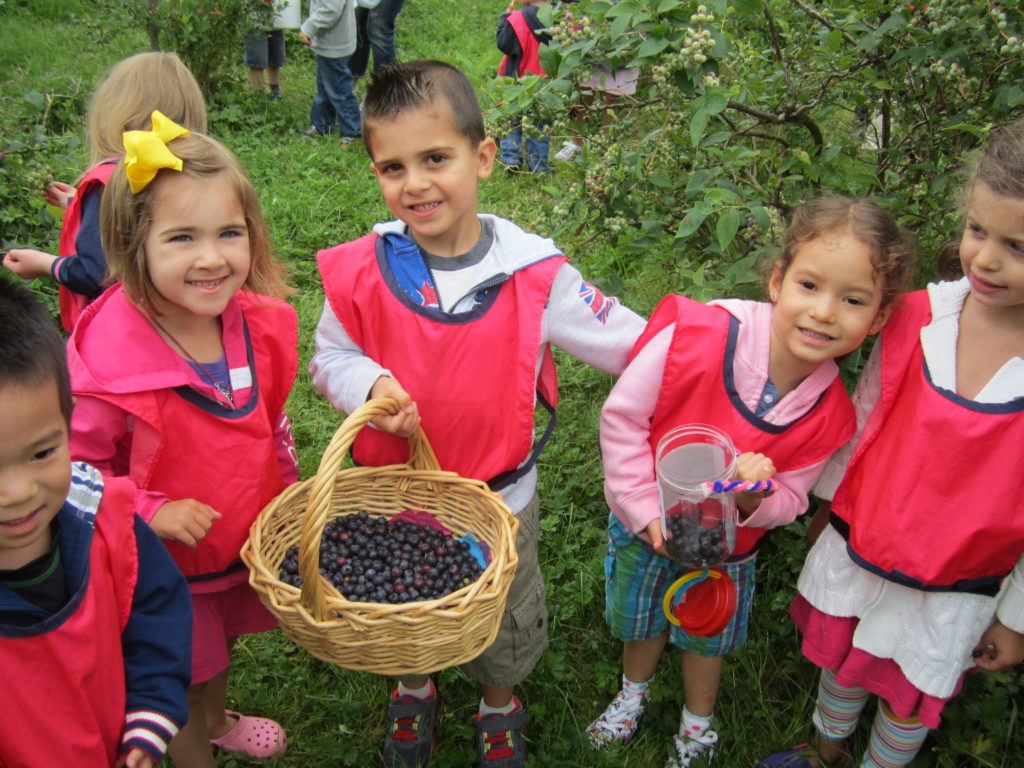
In Botany, students will study the Plant Kingdom through first person outdoor analysis, circle time activities and hands-on Montessori lessons. Through these activities, children will learn the properties of flowers, trees, leaves and be able to identify a variety of each.
Zoology
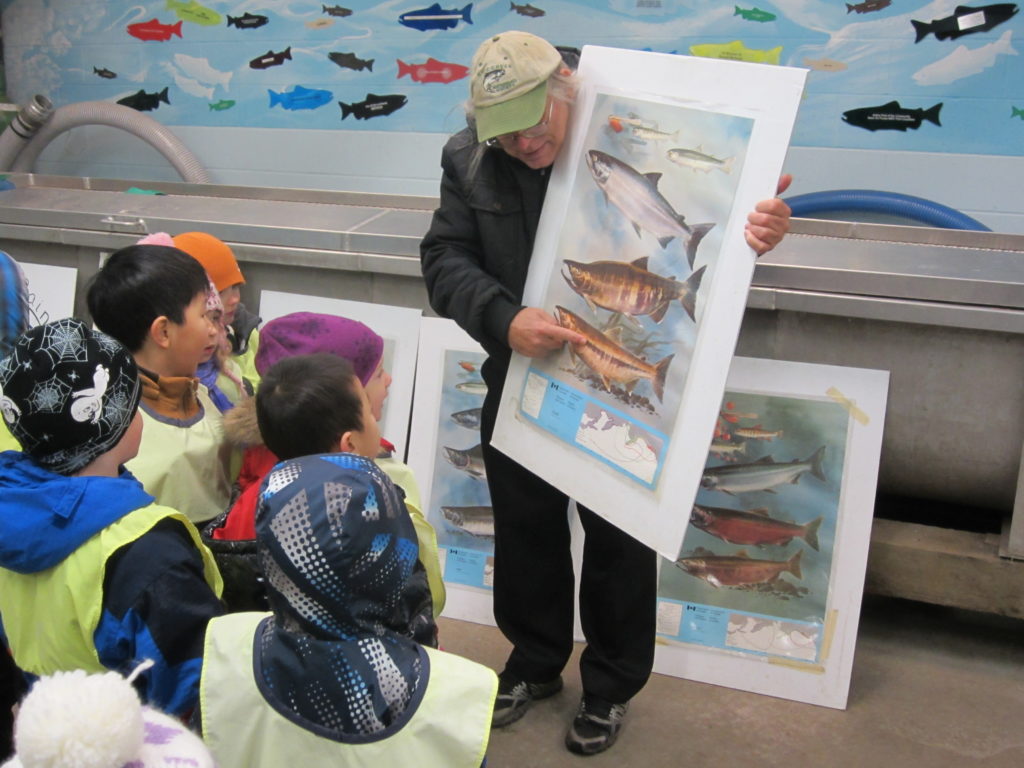
In Zoology, children will learn about the Animal Kingdom using the same methods as in Botany, outdoor analysis, circle time activities and hands-on Montessori lessons. Students will learn basic anatomy of different animals and be able to identify both the animal and its different body parts.
Kinder Canvas®
Kinder Canvas® is a unique children’s visual arts program aimed at stimulating every child’s particular creative urges. Students begin by studying a variety of artistic masters and their specific techniques including Van Gogh, Kandinsky and Picasso. Once students have a comprehensive understanding of these artistic techniques they will use a variety of mediums to create their own masterpieces. This open-ended art program allows children to hone in their fine motor skills, encourages self-expression and teaches children to focus on the process rather than replicating a preconceived finished product.
